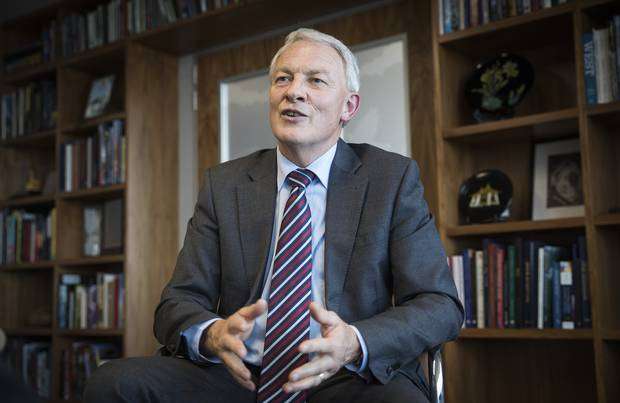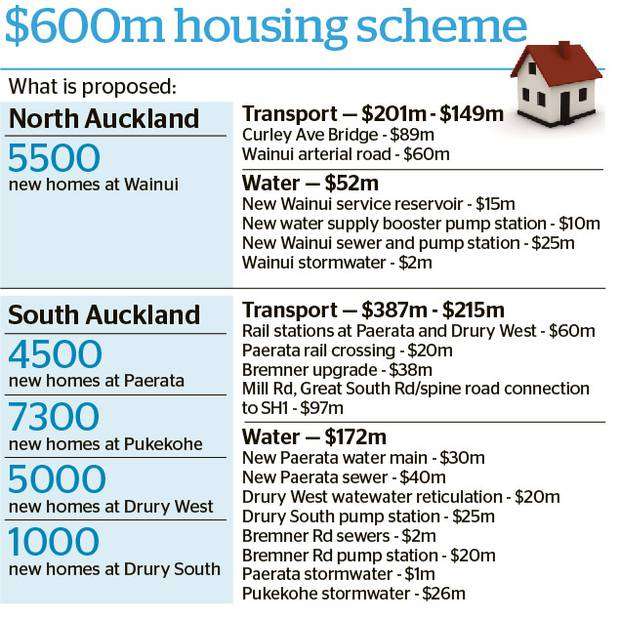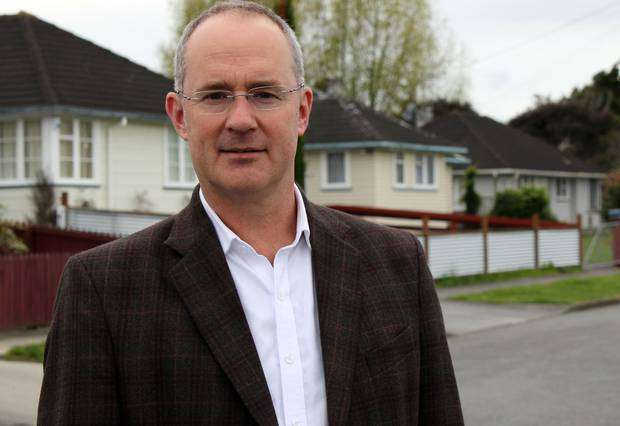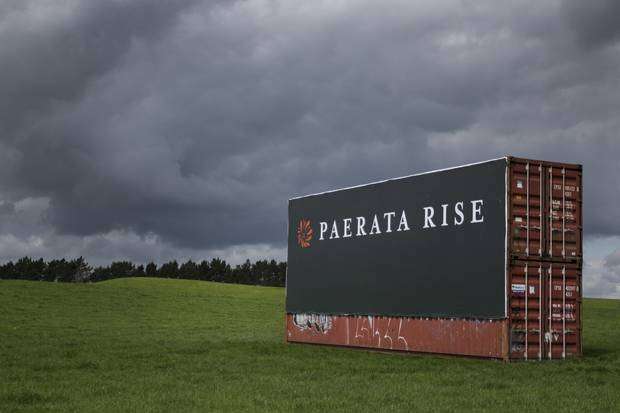A $600 million scheme to help Auckland's housing crisis by bringing forward 23,300 new houses in the north and south of the city is still some time away.
In July last year, Prime Minister Bill English unveiled a new financing model at Drury in South Auckland for people to buy cheaper homes in exchange for paying higher rates and water bills.
The scheme works by the Government and private investors paying the upfront cost of new transport and water infrastructure, which is recouped by charging new residents higher rates and water bills over a 20- to 30-year period.
The Government announced a new investment vehicle, Crown Infrastructure Partners (CIP), to attract private sector investment and run the scheme.
Start your property search
It was set up to bring forward big new housing developments, which cash-strapped councils like Auckland cannot afford because it is right up against its debt ceiling.
At the time, Auckland Mayor Phil Goff said the council had lodged proposals with the Government to bring forward construction of an extra 5500 homes at Wainui in the north of the city and 17,800 homes in the south at Drury, Paerata and Pukekohe.
The proposals included details for $588 million of transport and water projects, including new rail stations at Paerata and Drury, connecting a major new highway to SH1 and new water, sewer and stormwater projects.

New homes would spring up "much earlier than would otherwise be possible", said Goff.
However the mayor now says the model will not be in place "in the immediate future" and could be some time away.
Goff said the Government wanted to go beyond Crown funding to attract private capital and then devise a revenue stream to support that. Once that happened, any targeted rates would be subject to public consultation, he said.

Some of the developments in the proposals are proceeding regardless of the CIP model. Council-owned Watercare has confirmed it is working with the major landowner at Wainui to jointly fund and build water infrastructure, it is funding work in Drury and funding is set aside through growth charges and tariffs for the Wesley College development at Paerata.
Twyford said Labour welcomed the CIP financing model last July and was keen to continue its work to create a pipeline of finance for developers.

He saw it as a useful way of fixing a broken system for financing infrastructure where central government writes cheques ad hoc, developers struggle to get finance and councils cannot borrow more money.
Twyford understood progress has been made on the Auckland proposals - "we are on the way to delivering them" - but did not know the specifics.
Early work on financial modelling for CIP has been deemed commercially sensitive by the council and former Finance Minister Steven Joyce, who have withheld the work after requests by the Herald under the Official Information Act.

Meanwhile, Finance Minister Grant Robertson is looking at another form of targeted rates, known as a "capital value tax", to charge property owners who benefit from the construction of big projects like Auckland's $3.4 billion city rail link.
He said in the case of the CRL, businesses would be able to get significant value from commuters they serve.
"Through a targeted rate-type mechanism, they could be charged a little bit to help fund it. It is a very mainstream way of looking at funding things. National had decided to take a look at it, we are continuing that work," Robertson said last week.















































































